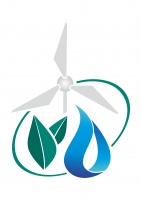Comparison of practices
| Название практики | Increasing water availability of pastures by constructing sardobas | Arrangement of springs to improve stock watering |
|---|---|---|
| Category | Water resources | Water resources |
| Tool | System for enhancing water availability | Public participation principle |
| Field of application |
|
Use of water resources |
| Usability of practice for adaptation to climate change | Moderate | Moderate |
| Implemented by | Ministry of Nature Conservation of Turkmenistan |
CAMP-Alatoo Public Foundation (PF) |
| Used by |
Country: Turkmenistan |
Country: Kyrgyzstan Province: Chuy Region District: Sokuluk District |
| Local specifics | 17,238 ha of barkhan (sand dune), takyr (dry-type playa) and solonchak (moist-type playa) sites of the Kara Kum Desert; deep ground water occurrence |
The site is located in a semi-drought zone subject to acute shortage of water resources in summer period and land degradation |
| Practice usage period |
Start date: 01.01.2012 End date: 31.12.2016 |
Start date: 01.01.2011 End date: 31.12.2011 |
| Problem solved through this practice | Desertification and decreased productivity of desert pastures due to over-grazing around existing cattle watering sites |
Extremely low water availability (supply) of pastures; the quantity of cattle in watering sites below standard; land erosion |
| Tools used in the practice | Technology of building sardobas (stone-dome covered water collection and storage reservoirs) to enhance pasture water supply |
Technology of springs arrangement for stock watering |
| Description of the practice and its results | Main actions:
Actions:
Results:
|
Actions: At first, the exact location of water outcrop was identified and cleaned from mud. 15 meters below the outcrop, 3 interconnected water tubs were installed (each 1.8 m long, 0.5 m wide and 0.5 deep). Each subsequent tub is located lower than the preceding one, thus, allowing water flowing down in the cascade manner. Results: Financial and economic: Cattle gaining weight quicker. Technical: Improved water supply in the area, including for cattle watering. |
| Lessons learnt and recommendations made | Lessons learnt: Construction of sardobas in takyr areas allows enhancing pasture water supply, thus, leading to the restoration of over-grazed pastures. Recommendations: The practice requires long-term planning and an integrated response with the early-on engagement of desertification experts (designing a set of measures to protect takyrs from sand drifts), state agencies (technical assistance) and pasture users (observance of pasture rotation schemes, prevention of takyrs from contamination and pollution). |
Lessons learnt: Collection of water in one place had been practiced since ancient times, but was forgotten over time. Rehabilitation of traditional practices should be welcomed. Recommendations: Similar practices should be scaled-up and continued as they not only benefit the local population, but also allow enhancing water availability for wild animals and expanding hayfield meadows. |
| Source of practice | Traditional tools transferred from generation to generation that proved their efficiency in modern conditions |
Traditional tools transferred from generation to generation which demonstrate their relevance in modern conditions |
| Readiness for implementation |
1. Cost of implementation: Low 2. Approximate cost of investment per 1 ha: $1,000-5,000 3. O&M costs: Low 4. Expert support: Needed at implementation stage |
1. Cost of implementation: High 2. Approximate cost of investment per 1 ha: 3. O&M costs: High 4. Expert support: Not needed |
| Brief information on the project | Project title: Responding to climate change risks for dekhan farming system of Turkmenistan on national and local levels. Project duration: 2012-2016. Project goal and objectives: build the adaptation capacity to respond to climate change impacts, including variability on local and national levels. Project beneficiaries: Bori Settlement (over 1,100 people) and Bo-Kurdak Settlement (about 4,500 people). Project implementer: Ministry of Nature Conservation and UNDP |
|
| Funding source | Government of Turkmenistan, Adaptation Facility | PF “CAMP-Alatoo”, local population |
| Information sources | WOCAT.net, Mr. Abdybek Asanaliyev (e-mail: asanaly61@mail.ru), Kyrgyz National Agriculture University, Bishkek |
|
| Contacts of a person, who filled this form | SIC ICWC |
SIC ICWC |
| Form submission date | 04.04.2018 | 30.03.2018 |




